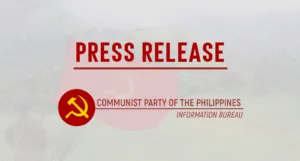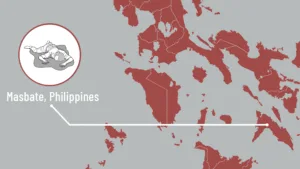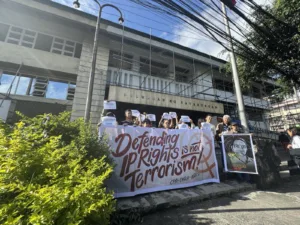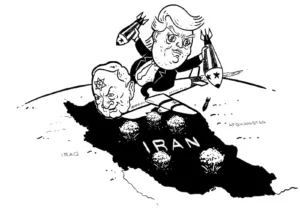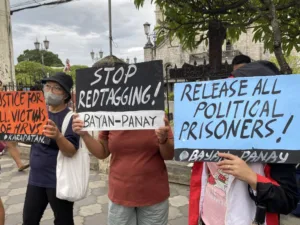Luis G. Jalandoni
Chairperson, NDFP Negotiating Panel
The National Democratic Front of the Philippines (NDFP) mourns the passing of Bishop Julio Xavier Labayen yesterday and extends its heartfelt condolences to his family, other relatives, and numerous friends, especially the poor he loved and served for more than four decades in Infanta, Quezon and elsewhere.

Among his many valuable contributions to the Filipino people’s struggle for social justice, national and scoial liberation, was his powerful campaign to establish social action centers throughout the country from 1966 when he became the National Director of Social Action of the Catholic Church. He held this position until 1982. These social action centers became strong pillars for organizing the poor and oppressed masses to struggle for social justice and defy the Marcos regime’s repressive measures, in particular during the martial law period from 1972 onwards. He was the inspiring organizer of the Catholic Church’s program of serving the rural masses.
During his tenure as National Director of Social Action, the Basic Christian Communities – Community Organizing became a powerful instrument of organizing for the rural masses throughout the country. Militant mass organizations sprouted empowering the people to fight for their rights and to strongly oppose the Marcos dictatorship.
Bishop Labayen published IMPACT in 1966, defying the Marcos regime’s repression of the independent media. Before martial law, when the sugarworkers in Negros launched their strike in 1971 against the then very prestigious Victorias Milling Company, and as the strike went on for months, Bishop Labayen supported the strikers. He sent them a card, stating: “We share because we care!” In the envelope was a substantial donation.
When Marcos imposed martial law in September 1972, he was one of seventeen Catholic bishops who couragously condemned the Marcos fascist dictatorship. As Bishop of the Prelature of Infanta, he immersed himself with the poor and oppressed and helped them build their organizations to empower them.
His resistance to martial law and his condemnation of the human rights violations of the regime and its military were well known. He thus became a target of the military. A military agent was tasked with killing him. The agent went to Infanta and secretly followed him, preparing for the kill.. Instead of killing Bishop Labayen, he approached the Bishop, divulged that he had been tasked by his superiors to kill him. But after seeing what the Bishop was doing for the people and how the people loved him, he decided he could not carry out the killing. He asked for forgiveness and bade goodbye to Bishop Labayen.
Bishop Labayen, in one of his visits to the NDFP Negotiating Panel in The Netherlands, himself told the above-stated story. Bishop Labayen came from time to time to visit NDFP officials Luis Jalandoni and Coni Ledesma whom he knew from his close association with his good friend Bishop Antonio Fortich of Bacolod and the Social Action Center there. He held dialogues with Jose Maria Sison, the Chief Political Consultant of the NDFP and the NDFP Negotiating Panel members, Fidel Agcaoili, Jalandoni and Ledesma. He was deeply interested in the peace negotiations between the Government of the Republic of the Philippines (GRP) and the NDFP. He shared insights and views on such issues as land reform, education and health.
When Prof. Jose Maria Sison was put on the terrorist list in 2002 by the US and the Council of the European Union, Bishop Labayen did not hesitate to present a testimony to the European Court declaring his firm opposition to the designation of Joma as a terrorist by the EU and the USA. After a seven-year legal struggle, the European Court of Justice ordered the Council of the EU to take Joma off the EU terrorist list. Bishop Labayen made his contribution to this legal victory.
Bishop Labayen exuded his love for the poor and oppressed. He was a firm proponent of a Church of the poor for the poor. He put his strong organizing skills, his intellect and wisdom, his high principles in the service of the poor, in the struggle for social justice. Throughout the martial law peirod, he stood out as a fearless fighter for freedom. He was one of the Magnificent 7 Bishops who consistently opposed the Marcos dictatorship.
His love and service for the poor for social justice, freedom and national and social liberation are a lasting legacy and inspiration to the the masses, to his confreres and numerous friends.
Mabuhay ang alaala at inspirasyon ni Bishop Julio Xavier Labayen!

